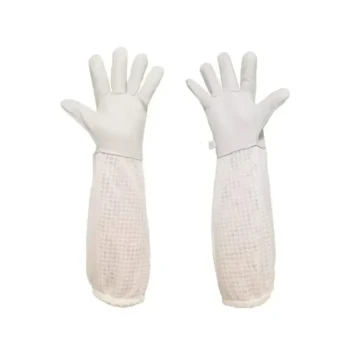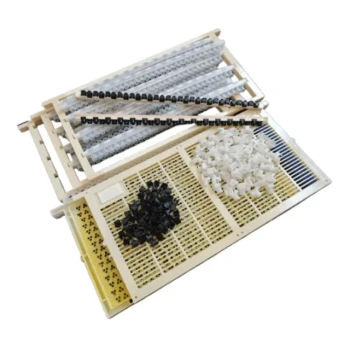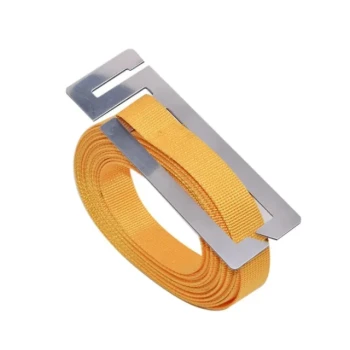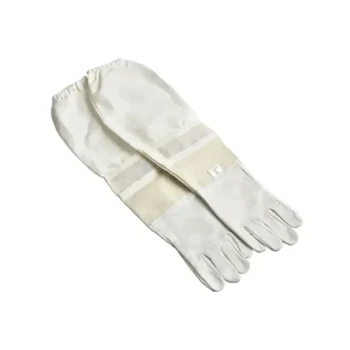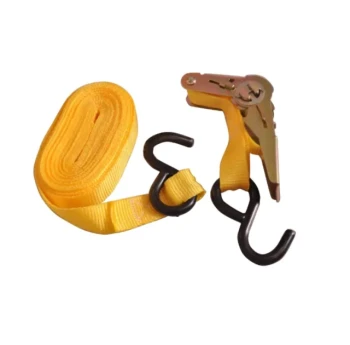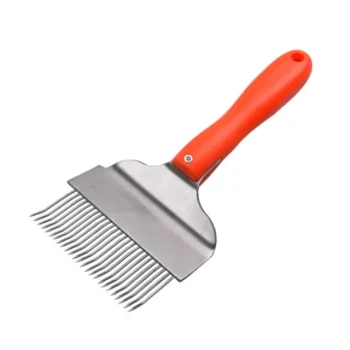The primary benefits of plastic frames in beekeeping are their exceptional durability, convenience, and contribution to a more controlled hive environment. They are manufactured to precise standards, come ready to use, and are highly resistant to common points of failure like high heat and the stress of honey extraction, making them a reliable choice for beekeepers of all experience levels.
The core decision between plastic and wood frames is not about which is universally "better," but which material best solves the specific challenges you face. Plastic frames excel in durability and operational efficiency, dramatically reducing the risk of comb collapse and simplifying critical hive management tasks.
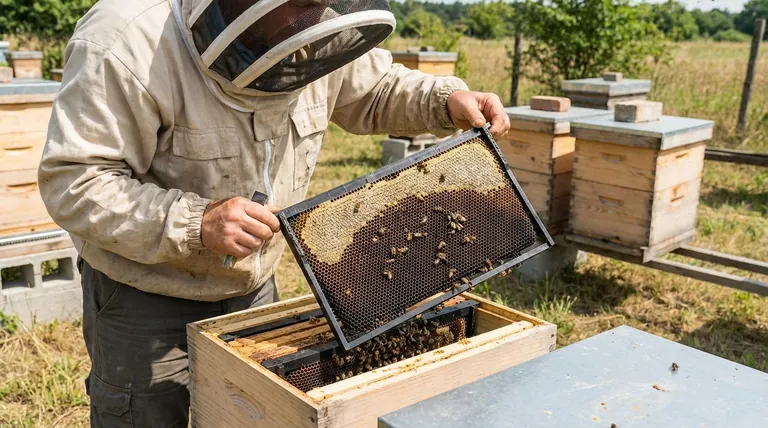
The Core Advantage: Durability and Reliability
A beekeeper's primary goal is to maintain a stable environment for the colony. The structural integrity of the frames is fundamental to this, and it is where plastic offers its most significant advantages.
Resisting High Temperatures
In warm climates, wax foundation can soften, stretch, or even collapse entirely within the hive. Plastic frames and foundations are immune to this, maintaining their shape and providing a stable structure for the bees, even in peak summer heat.
Surviving Honey Extraction
The process of extracting honey places immense rotational force on the comb. Plastic frames provide a rigid backbone that prevents the comb from breaking apart in the extractor, preserving the bees' valuable work for immediate reuse.
Long-Term Structural Integrity
Unlike wood, which can warp or break over time, plastic frames are exceptionally durable. Their consistent shape ensures they fit perfectly within the hive body year after year, preventing issues with spacing and burr comb.
Streamlining Hive Management
For many beekeepers, efficiency is key to managing a successful apiary. Plastic frames introduce several conveniences that save time and reduce common frustrations.
Ready-to-Use Convenience
Many plastic frames come as a single, molded piece with the foundation already built-in. This eliminates the need for assembly, wiring, or embedding wax foundation, allowing you to add frames to a hive immediately.
Standardized Sizing for a Perfect Fit
Because they are mass-produced, plastic frames adhere to exact and consistent dimensions. This guarantees a perfect fit in standard Langstroth hive boxes, ensuring proper bee space and minimizing issues with cross comb.
Enhanced Egg and Larva Visibility
Plastic foundation is available in different colors, most notably black. A black foundation creates high contrast that makes it significantly easier for the beekeeper to spot the tiny white eggs and young larvae, which is critical for assessing the queen's health and laying pattern.
Promoting a Healthier Hive Environment
The material of a frame can directly impact the colony's health by influencing pest management and cleanliness.
Resistance to Pests
Pests like wax moths can burrow through and destroy wax comb. A solid plastic foundation creates a barrier they cannot penetrate, helping to slow their spread and protect the brood and honey stores.
An Uncontaminated Starting Point
New plastic foundation is sterile and free from the chemical residues or disease spores that can sometimes linger in recycled beeswax. This provides a clean, safe start for a new colony.
Understanding the Trade-offs
While the benefits are compelling, it is crucial to approach this choice with a full understanding of the compromises.
The Cost Factor
The upfront cost of a single, ready-to-use plastic frame can be higher than the cost of unassembled wooden frame components. However, their longevity and resistance to breakage often result in a lower total cost of ownership over time.
Natural vs. Man-Made Material
Wood is a natural, sustainable material that some beekeepers prefer for philosophical reasons. Plastic, while highly effective, is a synthetic material, which is a key consideration for those aiming for a completely natural beekeeping system.
Making the Right Choice for Your Apiary
Your specific goals and challenges should guide your decision.
- If your primary focus is convenience and minimizing failure: Plastic frames are an excellent choice, as they are ready to use and highly resistant to collapse during extraction or in high heat.
- If your primary focus is ease of inspection and brood management: Opt for black plastic foundation, which makes it significantly easier to spot eggs and assess the queen's laying pattern.
- If your primary focus is long-term durability and pest resistance: Plastic provides a robust, non-porous material that stands up to repeated use and helps protect the hive from certain pests.
Ultimately, choosing the right frame is about selecting the tool that best supports the health of your bees and the efficiency of your workflow.
Summary Table:
| Benefit | Key Advantage |
|---|---|
| Durability & Reliability | Resists high heat, survives honey extraction, and maintains long-term structural integrity. |
| Hive Management | Ready-to-use convenience, standardized sizing, and enhanced visibility for brood inspection. |
| Healthier Hive Environment | Provides resistance to pests like wax moths and offers a sterile, uncontaminated starting point. |
Ready to upgrade your apiary's efficiency and durability?
HONESTBEE supplies durable, ready-to-use plastic frames and a full range of beekeeping supplies to commercial apiaries and distributors through our wholesale-focused operations. Enhance your hive management and protect your investment. Contact HONESTBEE today to discuss your wholesale needs!
Visual Guide
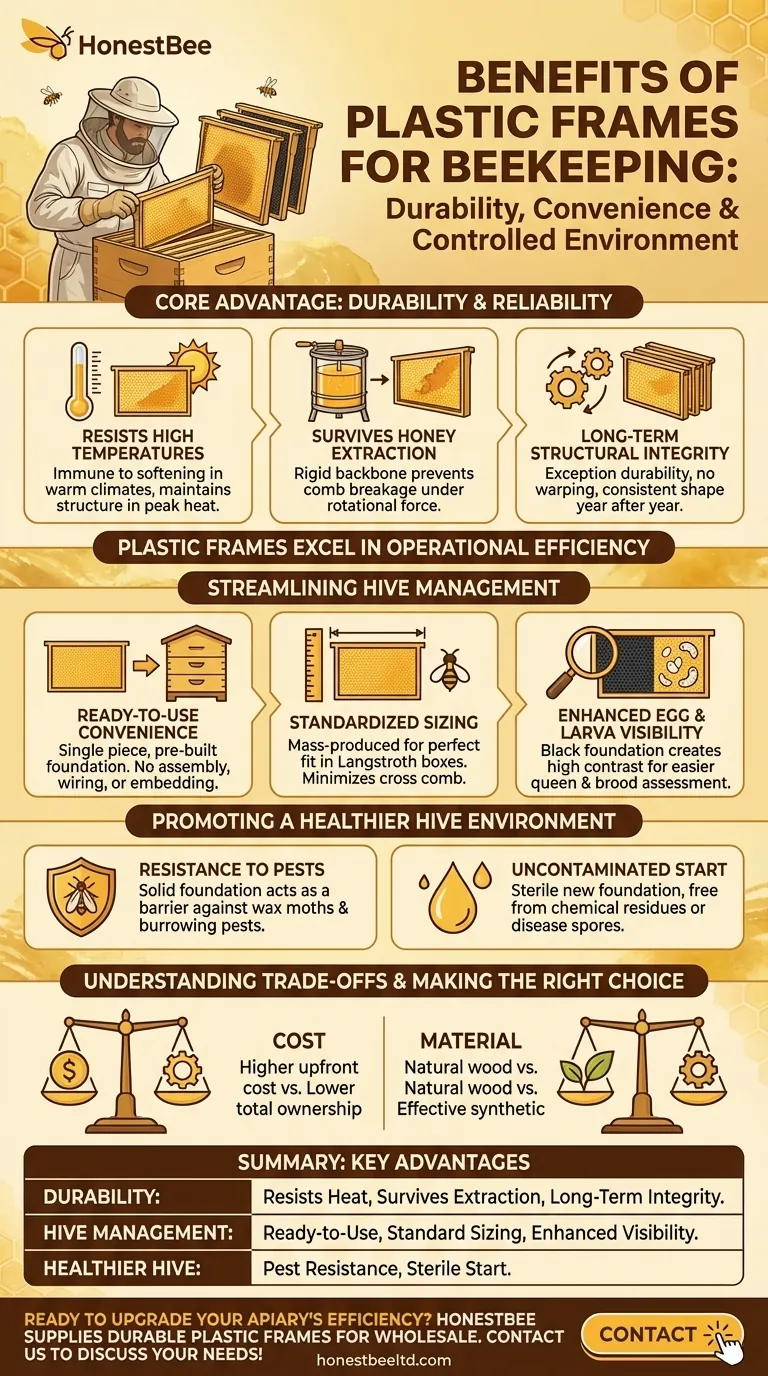
Related Products
- Wooden Bee Hive Frames for Beekeeping and Wholesale
- Professional Galvanized Hive Strap with Secure Locking Buckle for Beekeeping
- Copper Bee Frame Eyelets for Beekeeping
- Plastic Queen Bee Excluder for Bee Hive Wholesale
- Professional Plastic Queen Excluder for Modern Beekeeping
People Also Ask
- What are the advantages of using black plastic foundations? Boost Hive Inspection Efficiency & Durability
- What are the characteristics of plastic foundations for beehives? Durability and Longevity for Modern Beekeeping
- What are the primary disadvantages of wired and wax foundations? Why Plastic Foundation Wins on Durability
- Which type of foundation is more cost-effective in the long run? Plastic vs. Beeswax ROI Comparison
- Why is a wax coating crucial for the success of plastic foundation? Ensure Rapid Colony Growth & Straight Comb
- What are the benefits of using plastic foundation when replacing or repairing comb? Boost Hive Efficiency & Honey Yield
- How to get bees to use plastic foundation? Master the Wax Coating and Resource Strategy
- How does the quality of plastic foundation affect its acceptance by bees? Ensure Fast Comb Building with Waxed Sheets







